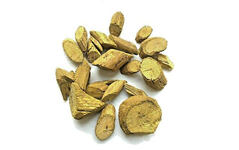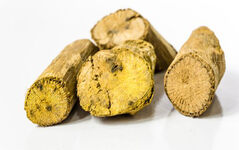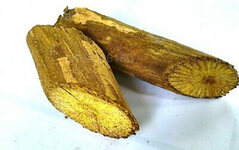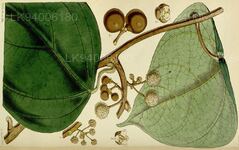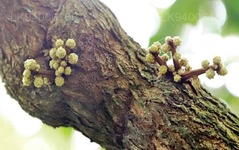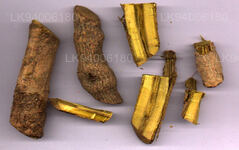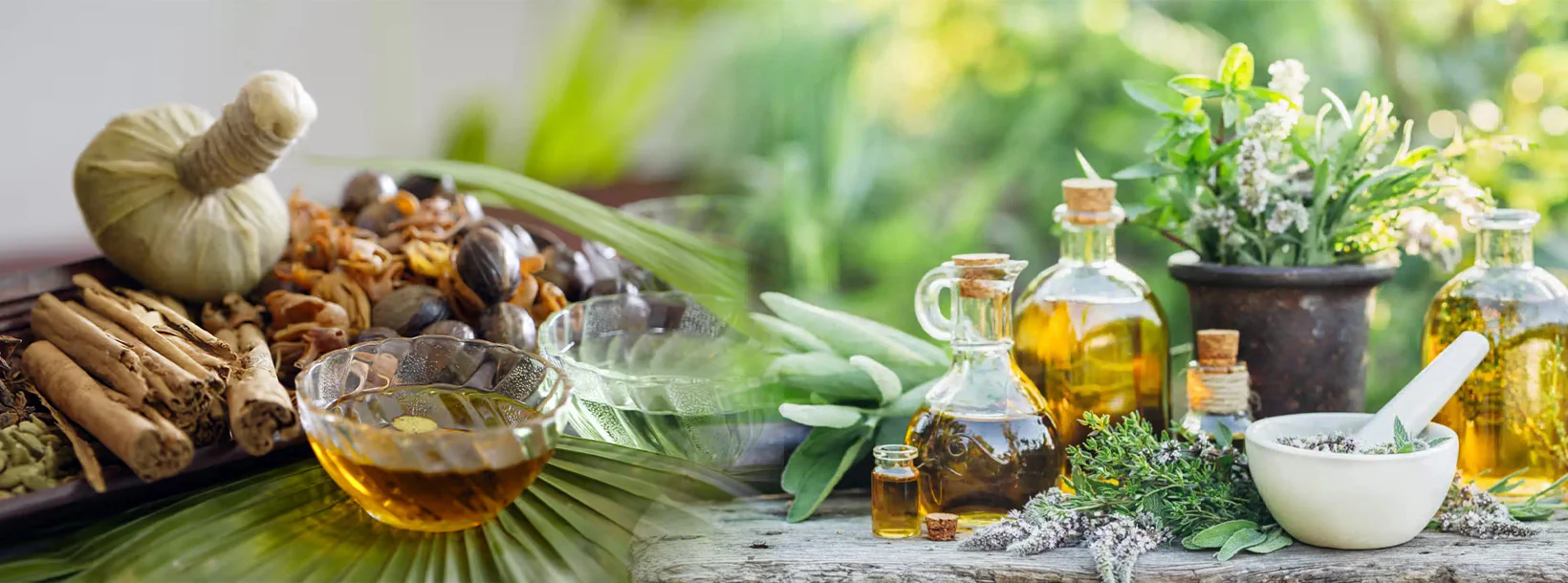
Ayurvedic Medicinal Plants
Sri Lanka's Ayurvedic tradition features a rich variety of medicinal plants used for centuries. Sri Lanka has a rich tradition of Ayurvedic medicine, drawing on its indigenous knowledge and a variety of medicinal plants. Here are some notable Ayurvedic medicinal plants found in Sri Lanka:
Coscinium Fenestratum
Coscinium fenestratum (Weniwelgeta, වෙනිවැල්ගැට) or yellow vine as it is sometimes referred to in English, is a flowering woody climber, native to South Asia and Mainland Southeast Asia. It is rare and critically endangered in many of its habitats. Coscinium fenestratum is a member of the family Menispermaceae and the genus Coscinium. The plant is known by many different names, such as: Tree turmeric, False calumba, Colombo weed, Weniwel, Daru Haridra (in Sanskrit), Mara Manjal (in Tamil and Malayalam), Haem herb (in Thai), Voer Romiet (in Khmer)
The habitat for Coscinium fenestratum spans South Asia and parts of Southeast Asia, from India to Indonesia. It can only thrive in a tropical climate and prefers mixed and dense evergreen forest, with fertile soil and high moisture.
Coscinium fenestratum has a long history as a medicinal plant in the various traditional medicines of the region where it grows. This includes Ayurveda, Unani and Siddha medicine in India, Sinhala medicine in Sri Lanka, the Kru Khmer healing traditions in Cambodia, traditional Vietnamese medicine of Thuoc Nam, etc.. The plant is used for a large variety of diseases and conditions, from fevers and diabetes to celiac disease and snake bites.
Because of the growing populations and industrialization of Asia, the demand for Coscinium fenestratum has increased manifold in the last decades, decimating the natural distribution of the plant dramatically. It is therefore now listed as rare and critically endangered in many of its habitats.
-

Ankenda
Acronychia pedunculata -

Beli
Aegle marmelos -

Bakmi
Nauclea orientalis -

Bangwel-geta
Coscinium fenestratum -

Bukinda /Walkinda
Tinospora malabarica -

Bu- kobbe
Allophylus cobbe -

Dodan –kaha
Memecylon capitellatum -

Diyamitta
Cissampelos pareira -

Embul dodan
Citrus aurantium -

Gas nidikumba
Biophytun reinward -

Hintambala
Carmona microphylla -

Goraka
Garcinia cambogia -

Karapincha
Murraya koenigii -

Keppetiya
Croton laccifer -

Kohomba
Azadirachta indica -

Kotikan-bevila
Sida alba -

Kudumiris (Forest paper)
Toddlia asiatica -

Kurundu
Cinnamomum zeylanicum -

Mahakaramba
Carissa carandas -

Muna mal
Mimusops elengi -

Nelli
Phyltanthus emblica -

Puwak
Areca catechu -

Rath mal
Ixora coccinea -

Eepatta / Ruk - anguna
Alangium salviifolium -

Siyambala
Tamarindus indica -

Walangasal / Wal-embilla
Embelia ribes -

Wal Karapincha
Micromelum ceylanicum -

Welangiriya
Paramignya monophylla
Ayurvedic and Herbal
-
 Promoção
PromoçãoSiddhalepa Ayurveda Herbal Balm
Preço normal De R$ 2,00 BRLPreço normalPreço unitário / porR$ 3,00 BRLPreço promocional De R$ 2,00 BRLPromoção -
Lakpura Wildcrafted Soursop (Guanabana, Graviola, Guyabano) Dehydrated Leaves Whole
Preço normal De R$ 18,00 BRLPreço normalPreço unitário / porR$ 13,00 BRLPreço promocional De R$ 18,00 BRL -
 Promoção
PromoçãoLink Swastha Triphala
Preço normal De R$ 12,00 BRLPreço normalPreço unitário / porR$ 14,00 BRLPreço promocional De R$ 12,00 BRLPromoção -
 Promoção
PromoçãoSethsuwa Pranajeewa Oil
Preço normal De R$ 19,00 BRLPreço normalPreço unitário / porR$ 23,00 BRLPreço promocional De R$ 19,00 BRLPromoção

